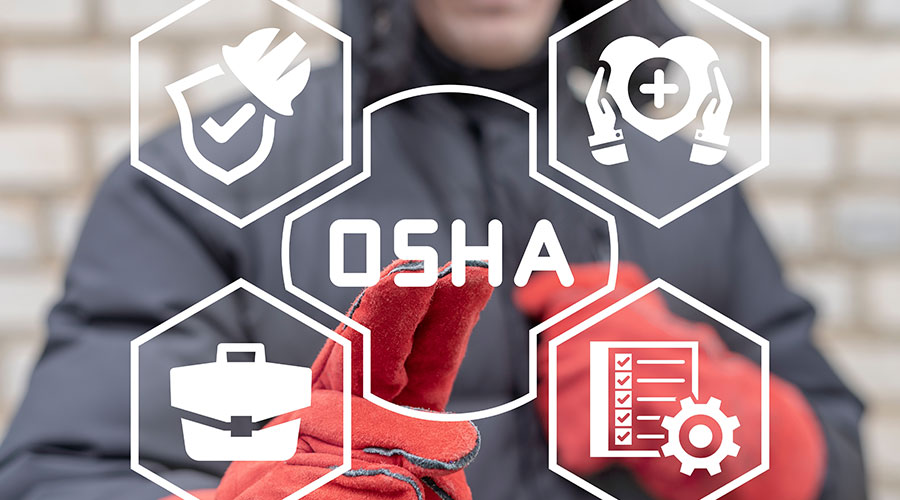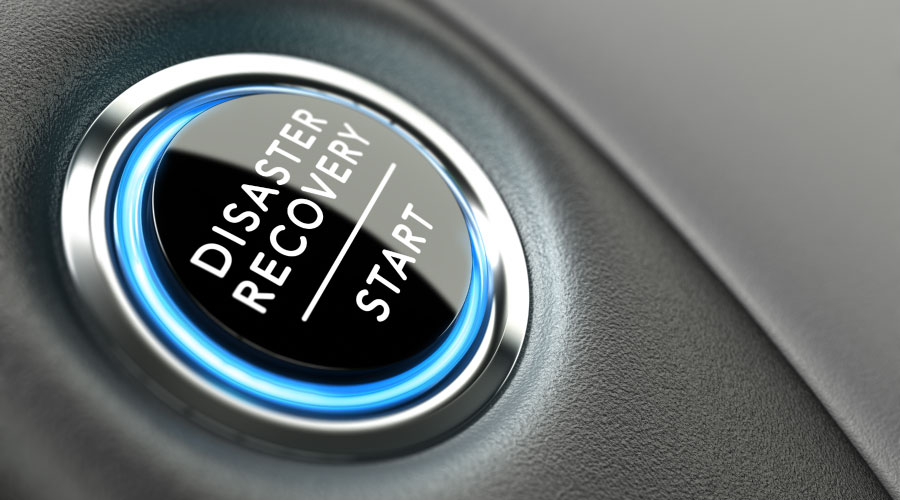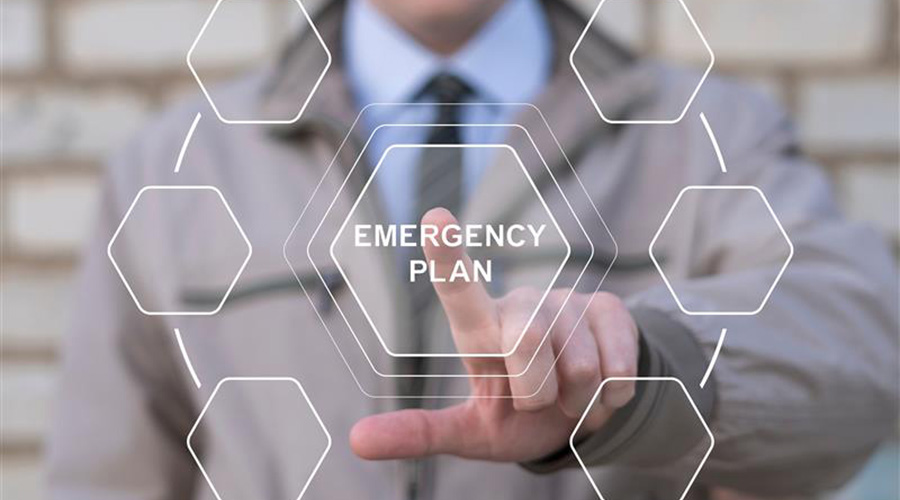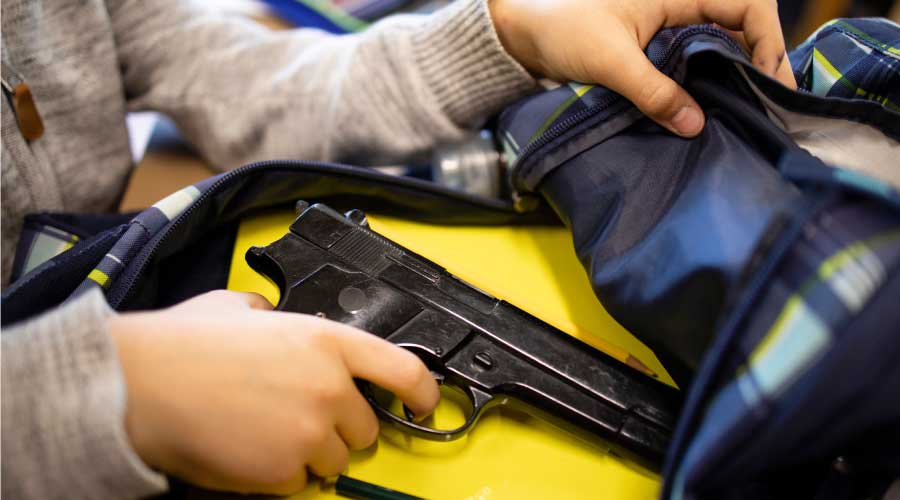After a Disaster, Generator Fuel, Vendors Are Important
The best-laid plans can't prevent damage to buildings. Nor can they account for damage to surrounding buildings or infrastructure. After Hurricane Wilma in 2005, Leone's building, along with a big chunk of the rest of Miami, was without power for about two weeks. While the building had a generator, the storm shut down the city's ports. What little fuel was coming in went first to police and fire departments and hospitals.
"We were trying to keep the generator running so that if people needed to go back into the building for some reason, they could. If we couldn't run the generator, then we had to lock down the building again," he says. As a result of that learning experience, he now makes sure that he has alternate vendors from outside the area, or even outside the state, lined up for the aftermath.
The importance of good relationships with vendors can sometimes be overlooked when you're planning how to recover from a disaster. But Bryant points out that they're often a critical part of the recovery process.
"Make sure that they know that you're counting on them in events of emergency," he says.
He and his staff have identified critical vendors and he makes sure he has easy access to contact information. "Being able to have those contacts readily available — a copy in your car, a copy at home, a copy in your office," can help get the ball rolling on recovery, he says.
Leone says there's another area that's often overlooked that can be a big help as well, both in planning for the disaster itself and developing strategies to recover from it: bringing in an outside opinion to look for any potential weak spots.
"We evaluate ourselves, which is fine," he says, but "you need to be humble. We like to think of ourselves as knowing everything about our property and there's not a whole lot more people can tell us, but just like anything else, sometimes an independent set of eyes can help a great deal."
Lamb adds that when it comes to preparation, you can never have enough training and evaluation, citing his philosophy of "inspect what you expect."
"You never know what unforeseen events are going to come up, so if you continuously inspect your facilities, your grounds, your equipment and your personnel," Lamb says, "then you'll know how they'll perform in times of greatest need."

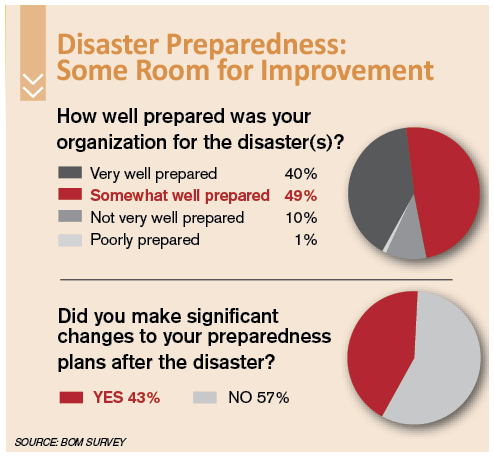
Click here to download PDF
Related Topics:
















